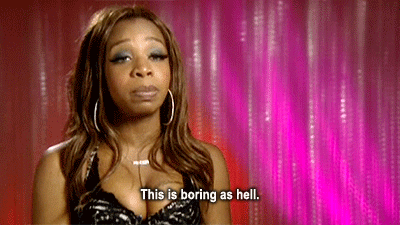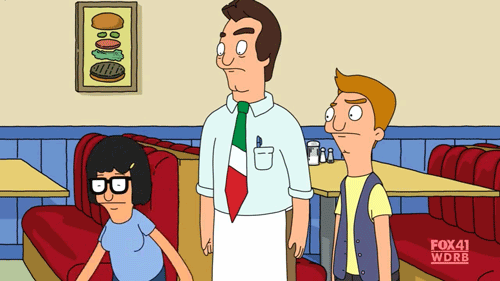10th grade civics class might have been one of the worst classes Ive ever taken in grade school.
It was horrifically boring, and my teacher was a subversively mean old woman who took special care to be as dry as possible. She also told me that I should be a lobbyist, a compliment at the time because it was cool to just hear a teacher tell me I could be anything; but an insult in the present because as an adult I know lobbyists are usually scum. Im sure Im not the only one who suffered in civics class- perhaps you never even paid attention. If that’s the case, you probably nod along in political conversations or zone out completely, because you really have no clue what is being said. In fact I was having a conversation with a very intelligent friend recently who admitted that she has no idea what the difference between the house and the senate is. Though nobody is asking you to be a political scientist, it is wise to understand how the government functions and its role in your day to day life. If you’re unaware of the primary concepts, you wont know when politics are going to affect your life. To combat this, I’ve decided to organize a digestible primer of political basics that will keep you on your toes over the next four years, with a few links attached for more in depth reads. Even if you don’t share this guide on social media because you don’t want people to know you’ve been bullshitting most of your political knowledge, I hope it helps.
I’ve tried to keep this brief but informative, so even when you reach points in this post that make you think….
 …..
…..
keep in mind that it’s almost over…. and you REALLY need to know this stuff. So are you ready?

lets do this.

- First, grasp that we have a bipartisan government.
- As historian Howard Zinn put it, “To give people a choice between two different parties and allow them, in a period of rebellion, to choose the slightly more democratic one was an ingenious mode of control.”Though third party supporters will scream that their parties matter in the grand scheme of things, the only two parties that truly hold weight in this country are republicans and democrats because our government is a cliquey high school. The two parties give voters the illusion of choice, yet too many politicians are obsessed with fitting the bill of their parties, instead of actually getting things done. In times of economic crisis, people flock to one of the two parties for help, not realizing that both parties put the needs of the wealthy elite above everyone else.
- Next, remember the function of the three branches.
- Judicial Branch: Interprets laws via the courts.
- Its main body is the supreme court. The judicial branch does not create laws or enforce them.
- Executive Branch: The president and cabinet
- Appoints federal posts, can veto laws created by the legislative branch, and has the power to initiate a war for 60 days before requiring congress approval
- It requires 2/3 of both the house and the senate to override a presidential veto
- Legislative Branch:
- Made up of the House and the Senate
- Judicial Branch: Interprets laws via the courts.
- Now you need to know the difference between the House and the Senate
- The House of Representatives (Elected every two years): It has the power to choose if the country should impeach the president, the power to choose the president in the case of an electoral deadlock, and it initiates spending bills. As of now, the house is in a republican majority with 247 republicans and 188 democrats
- The Senate (Elected every six years): It has the power to control treaties, the power to try all presidential impeachments in court, and gives advice and consent to the president. For instance, the senate has the power to approve or reject appointments made by the president for his cabinet. As of now, the Senate is in a republican majority with 54 republicans and 44 democrats
- Next you should know how to shift political power in 2020.
- Donald Trump is pretty confident he’ll be doing 8 years in the White House- but lets try not to let that happen again. Pay attention to the 2018 elections for the House. The House not only chooses the president in case of an electoral deadlock, but because the electoral college is based on the number of members in the senate and the number of members in the house, it is crucial that people who will actively fight against Trump’s harshest policies are elected into the house in 2018. Unfortunately, we can’t vote for members of the senate again until 2022. Regardless, it is important that you look up who represents you in congress and make sure you pay attention to what their activities are. You can use this website to find out who your state legislators are.
- It is worth noting that Donald Trump is currently claiming that millions of illegal votes were cast in the recent election, which is a lie. He is doing this so that he can pass executive orders to make voting harder, particularly for people who will be likely to vote against him and other Republicans.
- Donald Trump is pretty confident he’ll be doing 8 years in the White House- but lets try not to let that happen again. Pay attention to the 2018 elections for the House. The House not only chooses the president in case of an electoral deadlock, but because the electoral college is based on the number of members in the senate and the number of members in the house, it is crucial that people who will actively fight against Trump’s harshest policies are elected into the house in 2018. Unfortunately, we can’t vote for members of the senate again until 2022. Regardless, it is important that you look up who represents you in congress and make sure you pay attention to what their activities are. You can use this website to find out who your state legislators are.
- Now you should know these three things:
- The national deficit, or the difference in money between how much America makes and how much America spends, is 552 billion. We want this number to be as low as possible. Obama decreased it by 2/3 during his presidency.
- In 2016, the government spent $516,237,907,560 on the military, and by contrast spent $70,850,949,480 on education. Trump also just put a freeze on non-military hiring.
- The unemployment rate is projected to drop to 4.5 percent in 2017 and 2018. But most of the job growth is in low paying food service and retail jobs owned by large corporations, a scary thing to consider when Trump (and many other Republicans) want to deregulate businesses and make low level employment the wild wild west.
- Also, understand these types of systems so that you can call people on their malarkey if they use one of these terms erroneously:
- Fascism is an extremely intolerant and authoritarian government under the helm of one type of political party or school of thought. For example, Hitler’s Germany and Mussolini’s Italy were both fascist regimes that were violently intolerant of certain individuals, religions, political parties, and cultures.
- Communism is a system in which everything is owned by the working class and everyone is working class. In theory everyone is equal, but voluntary unemployment is a crime and there are no financial incentives for creative or innovative work. Also, someone inevitably gets more than everyone else.
- Socialism is communism’s nicer and less extreme cousin, where workers control and regulate the market. As Jack London said,“Let us not destroy those wonderful machines that produce efficiently and cheaply. Let us control them. Let us profit by their efficiency and cheapness. Let us run them for ourselves. That, gentleman, is socialism.”
- Oligarchy is when a small group of rich people rule over everyone else
- Democratic Socialism is putting the needs of the many over the profits of a few, especially when it comes to education and healthcare.
- Plutocracy is where big businesses privately finance politicians and control legislation from behind the scenes
- Kleptocracy is a corrupt government
- Speaking of plutocracies and kleptocracies, know what lobbying is.
- Lobbying is an attempt to influence a politicians’ stance or vote on an issue. It is legal bribery, with loose restrictions that have ensured that markets like private prisons, pharmaceuticals, oil, and guns flourish, even if they negatively impact society. Because average citizens don’t have enough money to lobby against legislation that stagnates their wages, increases their taxes, hurts their health care, jeopardizes their social security benefits, or generally makes their lives more difficult than it has to be, it’s a pretty big fucking deal. There are about 40,000 lobbyists currently acting on the behalf of various companies to garner support for legislation that benefits their respective employers. For more information about lobbyists, check out this article.
- Also, understand that no politician is sin or lie free.
- According to politifact.com’s Obameter, Obama didn’t keep ¼ of his campaign promises. Be sure to keep up with how Donald Trump fares at this link. You can also keep up with Trump activities on Intelexual Media, using the Trump Tracker.
- Last but not least, know the circumstances of federal level impeachment
- We the people cannot impeach or recall the president. The actual act of impeachment is when the House of Representatives brings an indictment against the president on the belief that he committed “treason, bribery, or other high crimes and misdemeanors.” The chief justice of the supreme court presides over the trial, which is executed by members of the senate. A conviction requires 2/3 of the senate finding the president guilty which results in his immediate removal. Despite what you may of heard, the vice president is next in line of succession even if the president is impeached.
See that wasn’t that bad, was it? 10x better than a dry semester in a 10th grade civics course if I do say so myself. 😉 If you’re knowledgeable on politics and I missed something, be sure to comment below!


Mommy
January 26, 2017 10:27 pm
Bravo!!!! I feel more educated already!!!!
Jason Whitaker
January 27, 2017 4:04 am
“Unfortunately, we can’t vote for members of the senate again until 2022.”
1/3 of the Senate is up for election every two years. 32-33 Senate seats in 2018/2020.
Elexus Jionde
January 27, 2017 6:36 am
no way, really! I had no idea, thanks for telling me
Tmoney
January 29, 2017 6:19 am
Thank you so much!!!! If you can please go more into details about communism and socialism as well as provide examples that describes what the house or reps vs senate can do in a hypothetical situation
Olisa Ezeh
February 1, 2017 6:39 am
Hi im a huge fan of yours and I reside between Nigeria and United Kingdom doing my doctorate at the equivalent of an Ivy League institution, Sheffield. I too am making a website to serve as an intellectual platform for Africans to wake up from their church going servitude and total lack of global vigilance. I believe I have a lot of perspectives to provide content for you. One quick example is Mercantlie Trade Policies. I do not know if you have written about it but its the legacy of unfair trade deals set by IMF on african countries to stifle manufacturing so they only focus on raw materials and have to sell to the West which processes and sells back to their colonies at much higher profits. this is seen in oil, food and vegetables, Theres many more perspectives to add from the African side of things.
Stay blessed Stay Woke.!!